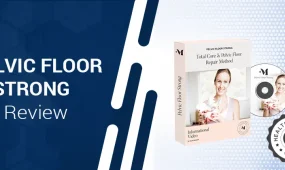Millions of older people, both men, and women suffer from overactive bladder syndrome. It can have a severe effect on the quality of life, especially for senior individuals who already have other health issues.
Experiencing the symptoms of overactive bladder (OAB) is annoying at best and painful at worst. Loss of bladder control, or incontinence, is one of the symptoms of overactive bladder disease (OAB).
Determining the precise reason for OAB can be difficult. There are alternative treatments for these conditions. One needs proper medication and care for sooner recovery, and thus, many prefer sending the elderly to nursing homes where they believe proper care will be given.
However, unfortunately, the incidence of maltreatment against the elderly is on the rise. It’s become a significant problem all across the world.
The good news is that if a senior family member is witnessing or experiencing any of these problems, they can direct hire a legal advocate for seniors to get the justice and compensation they deserve.
Symptoms of Overactive Bladder Disease
Some of the signs and symptoms include:
- Having a greater need to urinate than usual.
- Being unable to hold one’s urine in.
- Waking up multiple times during the night to urinate.
- Feeling the need to urinate suddenly.
- Leakage of urine.
Experiencing these symptoms may make normal life difficult. While OAB has no known treatment, it can be managed well. Medications, lifestyle adjustments, and even operations are among these options.
There are several causes of OAB. Symptoms of overactive bladder (OAB) can sometimes improve if the underlying cause is treated. The bladder may contract abnormally frequently if you have a neurological illness like Parkinson’s or multiple sclerosis. An enlarged prostate gland is a common cause of urinary problems in males.
The symptoms of OAB may also be caused by bladder stones or malignancy. If your doctor can determine the root cause of your OAB, you will be able to receive treatment that is more specific to your condition. As a result, you’ll experience less OAB discomfort.
Treatment of overactive bladder in the elderly
Urinary incontinence can be treated and managed in a variety of ways, including lifestyle changes and medication intervention.
1. Inspecting the eating habits
Foods and drinks that irritate your bladder should be avoided or consumed in smaller quantities. These may consist of:
- Hot and sour drinks and snacks
- Coffee or Tea
- Artificially sweetened foods and drinks
- Alcohol
- Fruits and juices that contain citric acid
- Chocolate
- Sauces, pastes, and ketchup made with tomatoes
2. Putting off the urge to urinate
In this phase, you should wait until you need to use the restroom rather than give in to the need immediately. First, you’ll only have to hang tight for a few minutes. Your ability to wait for extended periods, say, two or three hours, may improve.
This is something you should only try if your doctor recommends it. Some may get sicker or leak pee if they hold it too long.
3. Pelvic floor exercises, or Kegel
Particularly for females, the physical demands of pregnancy and childbirth can weaken the pelvic muscles.
In addition to being more common in women, muscular weakness is a significant cause of urine incontinence. Kegel exercises, which focus on strengthening the pelvic floor muscles, can help some people lessen their risk of urine incontinence.
Bladder retraining, which Kegel exercises can aid, is a technique that can be highly effective. It entails keeping a log of when and how often you urinate and gradually increasing the time you go without needing to urinate.
4. Sustaining regular bowel habits
When you’re constipated, your bladder already has to work harder than usual, which might negatively influence your ability to urinate.
Constipation can worsen bladder discomfort, so maintaining regular bowel movements will help. Here are a few tips to help you keep your bowels regular:
- Beans, pasta, oatmeal, bran cereal, whole wheat bread, and fresh fruits and vegetables are great ways to get more fiber into your diet.
- If you want to keep your bowel movements regular, exercise often.
5. Maintaining a healthy weight
Problems with bladder control may be worsened by obesity because of the strain it places on the bladder. Losing excess pounds helps relieve bladder pressure associated with obesity.
6. Bladder diary
Keeping track of your restroom use for a few days on paper can shed light on your internal workings.
Monitoring your symptoms in this way may help you identify triggers. Does consuming a certain meal or drink bring on a worsening of your symptoms, for instance? When you don’t get enough fluids, do they get worse?
7. Watch how much fluid you drink
To evaluate if decreasing fluid intake helps your symptoms, your healthcare provider may suggest trying it.
Some people, although not all, may experience a higher risk of incontinence if they consume certain types of beverages, particularly those containing caffeine or alcohol.
RELATED: The Guide to Improving the Well-being of Your Aging Family Members
Conclusion
The symptoms of an overactive bladder need not interfere with your routine. You may get your life back under control and find inner calm with time and the correct treatment. You must continue with the treatment plan for overactive bladder that you and your doctor have come up with. In that case, you may find that your health gradually improves.
6 Sources
Health Insiders relies on peer-reviewed studies, academic research institutions, and medical associations. We avoid using tertiary references. You can learn more about how we ensure our content is accurate and current by reading our editorial policy.
[1] Prostate Enlargement (Benign Prostatic Hyperplasia) https://www.niddk.nih.gov/health-information/urologic-diseases/prostate-problems/prostate-enlargement-benign-prostatic-hyperplasia
[2] Leron E, Weintraub AY, Mastrolia SA, Schwarzman P. Overactive Bladder Syndrome: Evaluation and Management. Curr Urol. 2018 Mar;11(3):117-125. doi: 10.1159/000447205. Epub 2018 Feb 20. PMID: 29692690; PMCID: PMC5903463.
[3] Shah D, Badlani G. Treatment of overactive bladder and incontinence in the elderly. Rev Urol. 2002;4 Suppl 4(Suppl 4):S38-43. PMID: 16986020; PMCID: PMC1476020.
[4] Symptoms & Causes of Bladder Control Problems (Urinary Incontinence) https://www.niddk.nih.gov/health-information/urologic-diseases/bladder-control-problems/symptoms-causes
[5] Przydacz M, Campeau L, Walter JE, Corcos J. How long do we have to treat overactive bladder syndrome (OAB)? A questionnaire survey of Canadian urologists and gynecologists. Can Urol Assoc J. 2018 May 14;12(9):E378–83. doi: 10.5489/cuaj.5032. Epub ahead of print. PMID: 29787370; PMCID: PMC6143506.
[6] Urology Care Foundation. What is an Overactive Bladder (OAB)? https://www.urologyhealth.org/urology-a-z/o/overactive-bladder-(oab)







 This article changed my life!
This article changed my life! This article was informative.
This article was informative. I have a medical question.
I have a medical question. Ask a Question
Ask a Question
 This article contains incorrect information.
This article contains incorrect information. This article doesn’t have the information I’m looking for.
This article doesn’t have the information I’m looking for.